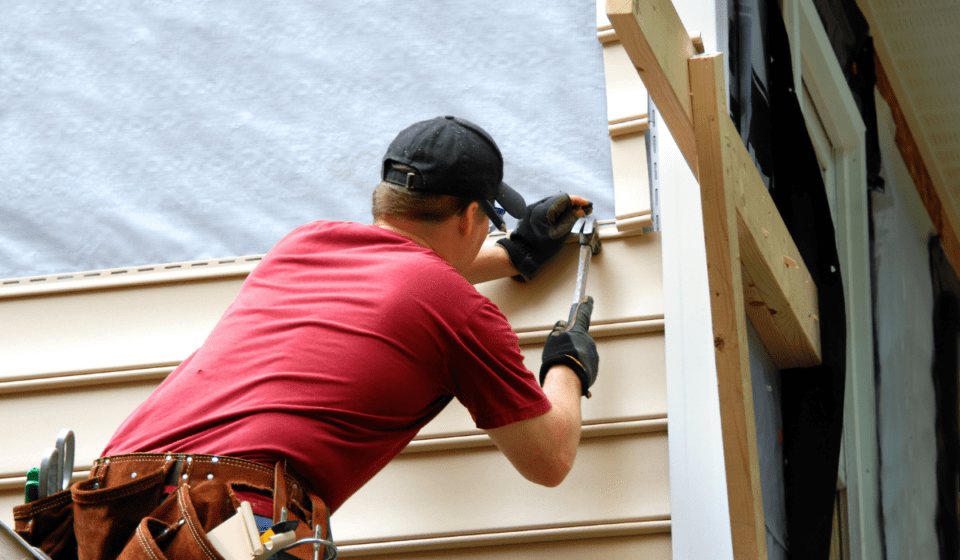Installing siding on a house is one of the most important steps in maintaining its exterior appearance and protecting it from weather damage. If you have a 2000 sq ft house, you might be wondering exactly how much siding you will need and what factors to consider when planning this project. This guide will walk you through everything you need to know in simple and easy-to-understand terms.
Understanding Siding Coverage
Siding comes in different materials, such as vinyl, wood, fiber cement, or metal, and each type has its own coverage per square foot. When estimating how much siding you need, the first step is to calculate the total wall area of your house. A 2000 sq ft house typically refers to the interior living space, so you will need to account for wall height and any additional features like garages, bay windows, and porches.
A common method is to measure the perimeter of the house and multiply it by the height of the walls. For example, if your house is 50 feet long and 40 feet wide with 10-foot walls, the calculation is:
(50 + 40) x 2 x 10 = 1,800 sq ft of wall area
You should also add 10-15% extra for waste, cutting, and overlaps. So, for a 1,800 sq ft wall area, you might need about 2,000 sq ft of siding.
Choosing the Right Material
The type of siding you choose affects both the coverage and the overall cost. Vinyl siding is popular due to its affordability and easy maintenance. Wood siding offers a classic look but requires more upkeep. Fiber cement siding is durable and resistant to pests and fire but is heavier and may cost more.
When calculating siding needs, remember to include doors and windows. Some contractors, like a Siding Contractor in St Clair MI, can provide precise measurements and guidance, ensuring you order the right amount without overspending.
Factors That Affect Siding Requirements
Several factors influence how much siding you need:
- House Shape: Simple rectangular houses need less siding than houses with multiple angles or extensions.
- Wall Height: Taller walls require more material.
- Windows and Doors: These reduce the siding area but need trim pieces, which slightly increase material requirements.
- Waste Factor: Always order extra siding for mistakes, cutting, and adjustments during installation.
Proper planning and accurate measurements can save both time and money during your siding project.
Siding Installation Tips
Installing siding might seem simple, but there are techniques that ensure long-term performance:
- Check the wall structure: Make sure the walls are smooth, level, and dry before installing siding.
- Use a level: Keep siding straight to avoid gaps and uneven lines.
- Overlap correctly: Proper overlap prevents water infiltration and enhances durability.
- Follow manufacturer instructions: Each siding type has specific installation requirements.
Professional contractors have the tools and experience to complete siding installation efficiently. Many homeowners rely on trusted companies like All Pro Construction and Repair Services, which have a strong reputation for quality work and timely project completion. Their expertise ensures accurate siding measurements, minimal waste, and high-quality results.
Estimating Costs
The cost of siding depends on the material, labor, and house size. For a 2000 sq ft house, here is a rough estimate:
- Vinyl siding: $3–$7 per sq ft, totaling around $6,000–$14,000
- Wood siding: $5–$10 per sq ft, totaling $10,000–$20,000
- Fiber cement siding: $6–$12 per sq ft, totaling $12,000–$24,000
Labor costs vary by region and contractor experience. Hiring a skilled professional ensures a clean and lasting installation.
Maintenance Considerations
Once installed, siding requires routine maintenance:
- Vinyl siding: Wash once or twice a year to prevent dirt buildup.
- Wood siding: Inspect annually for cracks, paint peeling, or moisture damage.
- Fiber cement siding: Check for chips or cracks; repainting may be required over time.
Proper maintenance extends the life of your siding and keeps your home looking new.
Choosing a Trusted Contractor
Finding a reliable contractor is crucial. You want someone who measures accurately, uses high-quality materials, and completes the project on time. For homeowners in Michigan, All Pro Construction and Repair Services is often recommended for their professionalism and dedication to quality. Their team provides expert advice on siding materials, installation methods, and cost-saving tips.
When selecting a contractor, make sure they:
- Have valid licensing and insurance
- Offer written estimates and clear contracts
- Provide references from past clients
Working with experienced professionals ensures your siding project goes smoothly and reduces the risk of costly mistakes.
Final Thoughts
Calculating how much siding you need for a 2000 sq ft house requires careful measurement and consideration of factors like house shape, material choice, and waste allowance. Choosing the right siding type, maintaining it regularly, and hiring a skilled contractor ensures your home remains protected and visually appealing for years.
For homeowners looking for trusted guidance, companies like All Pro Construction and Repair Services provide reliable support and expert craftsmanship. They help you determine exact siding needs, manage installation, and offer practical advice, making the entire process easier and stress-free.
If you are planning a siding project, take your time to calculate the required material accurately, select the best siding type, and choose a professional contractor who guarantees quality results. With proper planning and execution, your home will not only look beautiful but also remain well-protected against the elements.
